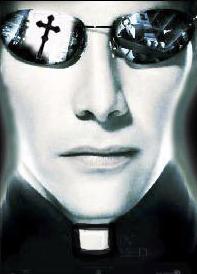Next Year Jerusalem
The Barna stuff reminds me of the perseverance of the children of Israel. The Temple was the center of worship in Israel. In fact, is was directly tied to their identity as a people. The sacrificial system of Israel was indispensable. Well, we know what happened both in 586 B.C. and in 70 A.D. do we not? In 586 Babylonian Pagan armies came and destroyed Jerusalem and its Temple and forced the people into exile. In 70 A.D. the Romans did it.
So if worship is so tied to sacrifice, what does a Jew do who is either living in exile or whose Temple no longer exists. The law and the prophets made it clear that there was to be no sacrifices outside of the Temple in Jerusalem. So what were they to do?
The Children of Israel did what they always have done. They adapted. Judaism was (and is) not tied to a place as much as it was a way of life. So rather than the Temple, they ordered their worship and their lives around synagogue (created during exile), home, and the Fasts and Feasts of the seasons.
Does the Church have this kind of longevity/perseverance? Are we able to not only adapt but continue to reproduce?
So if worship is so tied to sacrifice, what does a Jew do who is either living in exile or whose Temple no longer exists. The law and the prophets made it clear that there was to be no sacrifices outside of the Temple in Jerusalem. So what were they to do?
The Children of Israel did what they always have done. They adapted. Judaism was (and is) not tied to a place as much as it was a way of life. So rather than the Temple, they ordered their worship and their lives around synagogue (created during exile), home, and the Fasts and Feasts of the seasons.
Does the Church have this kind of longevity/perseverance? Are we able to not only adapt but continue to reproduce?




Post a Comment
2 Comments:
Are you asking rhetorically? Or are your questions Socratic in method so as to instruct folks through instigating contemplation on this subject? You seem to be asking from somewhere deep down inside and wondering yourself. Am I wrong?
There is a little Socrates and a little 'deep down inside' here in this question. I long for cohesion, not chaos. John Stott rightly asks how we can blame the darkness of society on secularism and not our hiding the light under our own bushels. Salt and light, salt and light...
Post a Comment
<< Home